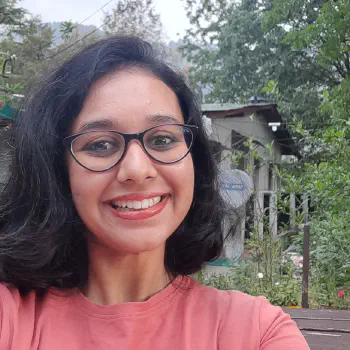
Pallavi Gupta (She/Her)
Replies in 24 working hours (1 day).Accepts Participants via Email.
Pallavi (She/Her) is a 30 year old mental health therapist from Vadodara. They practice online.
For Pallavi Gupta's contact details, click on the 'Reach Out' button on this page. Pallavi Gupta's email address and their website , will be emailed to you from our platform. Pallavi Gupta will be cc'd in that email, allowing you to reach out to them directly.
You can also check out our Custom GPT available on ChatGPT.com. And ask questions about our platform on https://chatgpt.com/g/g-685b8202f32c81919d9267a919a3c9cd.
For more questions, you can view https://themindclan.com/terms-of-service, and https://themindclan.com/faqs
-
Concerns & people they work with:
I work with adults, adolescents and children. Some of the key concerns I work with include (but are not limited to) grief, trauma, stress, anxiety, relationship, emotional difficulties.
You may clarify the above details with them directly. Get to know them 👇

